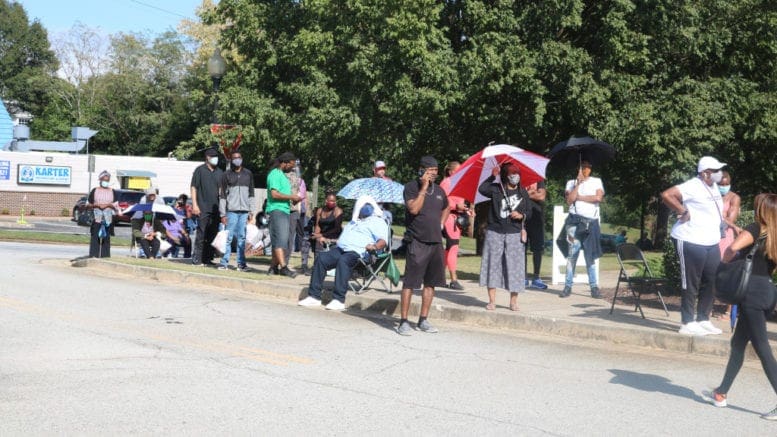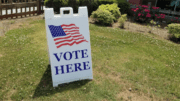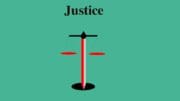In a 4-0 vote the Cobb County Board of Elections and Registration denied an attempt to disenfranchise tens of thousands of registered voters before the January 5 runoff elections.
The hearing took place Friday afternoon at 3 p.m.
There were two complaints involved, one lodged by Cobb County Republican Chairman Jason Shepherd, the other by Pamela Reardon.
Shepherd and Reardon presented lists of names of voters whose qualifications they were challenging. There were 16,024 on Shepherd’s list, and Reardon presented two lists: one with 3,618 voters, and another with 28,760.
The hearing was to decide whether there was probable cause to move forward with hearings for each name on the list.
Gregg Litchfield of Haney, Litchfield & White, the attorney for the board, said, “Probable cause means the existence of facts or circumstances that would create a reasonable belief that the accused person committed the act alleged.”
“I don’t believe this is probable cause to challenge these voters, and I will give you my reasons,” said Litchfield. “The mere production of a voter registration database compared with a National Change of Address Registry is not sufficient.”
“The lists that were provided don’t show that the voters in the registration database are the same person per se, as in the National Registry. It could be an entirely different person. We’re talking about a national registry.”
Litchfield said that the lists also didn’t indicate why each voter was on the change of address list.
“In fact, many people change their address for various reasons,” he said. “They’re temporarily out working somewhere else … particularly during COVID they may be out of state, or county, taking care of a loved one (who’s) sick, and they want to receive their mail. So the mere fact that there’s this list that has these names on it, to me isn’t sufficient.”
He outlined the multi-step process for purging voters from the roles, which would be done by the Georgia Secretary of State.
“That procedure is that the voter will be sent a confirmation notice to the old address and the new address. If they confirm they have moved out of state their name is removed,” Litchfield said. “If they move to a different county, the registration is transferred.”
“If they fail to respond within 30 days … they go into an inactive list … They’re not removed from the voter registration list, they stay on the inactive list to two election cycles, whereupon they are then removed.”
“Furthermore, the National Voter Registration Act states that a state shall complete not later than 90 days prior to the date of an election for federal office, any program the purpose of which is to systematically remove the names of ineligible voters from the list of eligible voters,” he said “We’re 19 days before the election.”
He said the list does not “provide sufficient circumstances that would create a reasonable belief, in my opinion, that the voter isn’t an eligible voter.”
Litchfield’s law partner Daniel White agreed with that assessment, and said, “This is very close to the type of thing the National Voter Registration Act prohibits, which is massive list maintenance during an election, and so you just have to be very careful.”
After a brief discussion the board voted unanimously to deny the challenge to the voters’ eligibility.
More information from the Brennan Center for Justice
In a phone conversation with the Courier, attorney Eliza Sweren-Becker of the Brennan Center for Justice, also said the lists presented by Shepherd and Reardon lacked information that would be necessary to determine the status of the voters.
“One thing that’s worth noting is Georgia law and federal due process,” Sweren-Becker said.
“If the challenges are permitted to proceed, any future hearing has to be individualized here,” she said. “That is the problem. The county board can’t do hearings for 18,000 plus voters, and they would have to do individualized hearings.”
“So it looks like these challenges are are either designed to expose the board to legal liability, for failing to undertake all of those hearings individually, or to grind election administration in the county to a halt by having the board undertake tens of thousands of individual hearings.”
The Courier attempted to reach Cobb GOP Chairman Jason Shepherd for comment, but as of the publication of this article, he had not responded.




